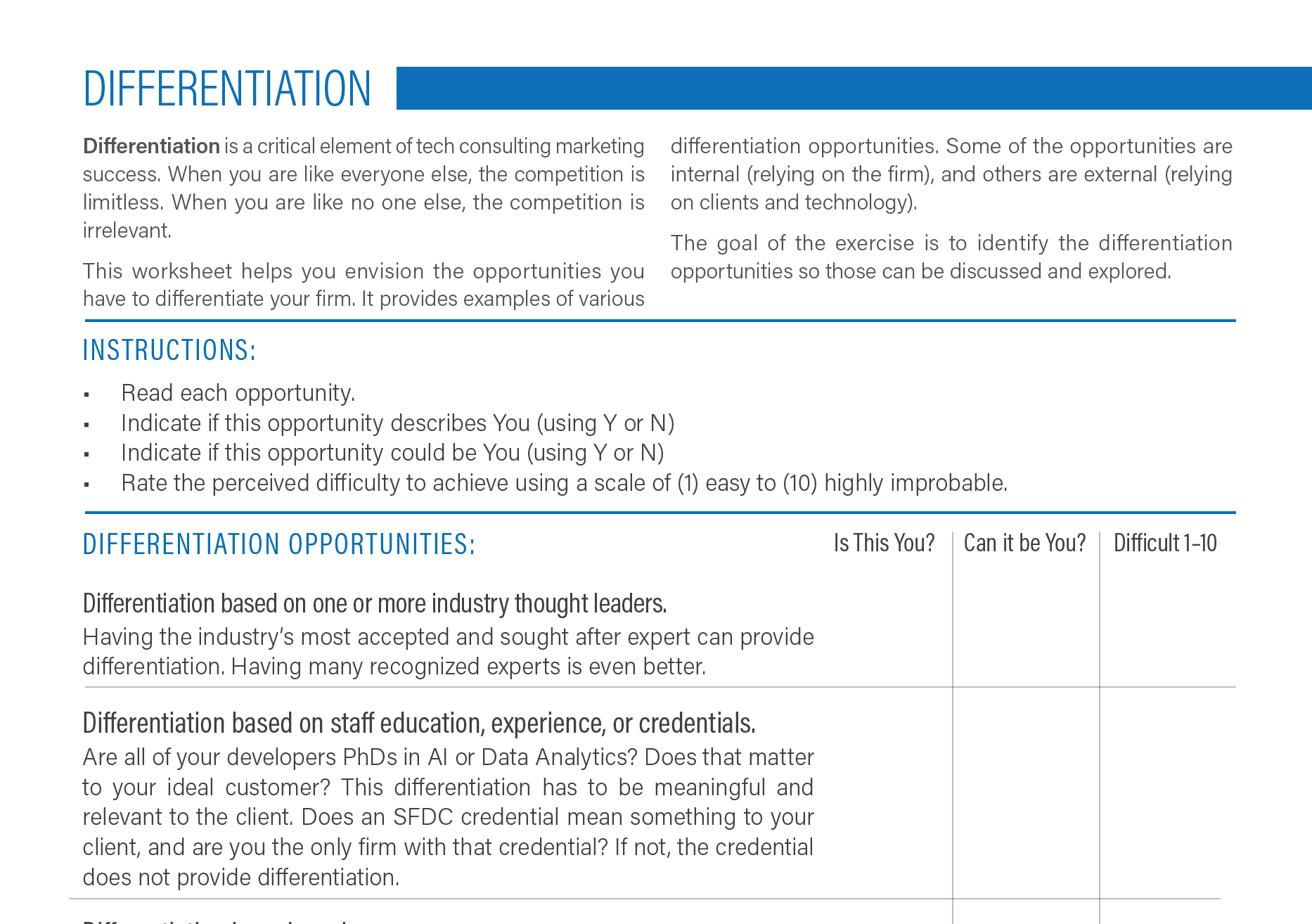Firms that establish a differentiation are more likely to achieve success. That includes financial success, customer satisfaction success, and marketing effectiveness success.
What is Differentiation?
Marketing differentiation is the process of distinguishing a product or service from others to make it more attractive to a particular target market.
How does your tech consulting firm differentiate itself?
In a market filled with other firms claiming to do the same things they do,
The answer to the question influences your strategy, marketing effectiveness, and ability to rise above the competition and succeed. That’s why it’s crucial to consider differentiation as a defined area of your marketing strategy.
Differentiation can be difficult for some firms to tackle. They grapple with the uncertainty of market size, eliminating focus areas and building clear evidence of their differentiation. But the benefits of differentiation outweigh the effort to identify what makes you different and the effort to live up to the claim.

Why differentiate?
When your firm chooses to separate itself from the crowd and
-
Marketing effectiveness increases – inbound interest and leads increase
Perceived value heightens – customers believe they are getting more for their investment because they are working with an authority. -
Price pressure decreases – if your firm is the known authority in a space, you are less likely to feel price pressure because there are fewer alternatives.
-
Margins increase – without price pressure and the positive impact of increased perceived value, your firm can achieve more significant margins.
Ways to build differentiation
There are numerous ways to differentiate your tech consulting firm. Valens Point has put together a baker’s dozen list of opportunities that illustrate common methods consulting firms use to differentiate.
1. Differentiation based on one or more industry thought leaders.
2. Differentiation based on staff education, experience, or credentials.
3. Differentiation based on size.
4. Differentiation based on offering a particular service.
5. Differentiation based
6. Differentiation based on a
7. Differentiation based on the relationship
8. Differentiation based on one vertical or industry.
9. Differentiation based on
10. Differentiation based on your client portfolio.
11. Differentiation based on solving a significant business challenge.
12. Differentiation based
13. Differentiation based on delivering an impactful or highly valuable result.
The worksheet available here explains each difference in more detail and helps you identify your firms’ difference by answering two questions: Is this you? and Could it be you? It’s a thinking exercise that helps you discover and determine the opportunities to separate your firm.
Don’t worry if you read through the list and don’t have a resounding “YES! That’s our firm” moment. Your differentiation may lie in the combination of two or more of the opportunities.
Download the Differentiation Worksheet now.
Do you want to discuss your opportunities to differentiate and what impact that could have on your consulting firm? Schedule a no-cost, no-commitment differentiation review by clicking here. You’ll get expert tech consulting firm marketing advice on how differentiation and authority building can raise your firm to the next level.
Ready to Invest in Marketing?
Our initial consultation won’t cost you a dime but will earn you many dollars in return.
About Valens Point
We help early-stage tech companies accelerate growth by building brand credibility, establishing repeatable lead generation, and supporting sales and partner teams. The result — effective marketing up and running in a fraction of the time it would take to recruit, hire, and train an internal marketing team.
